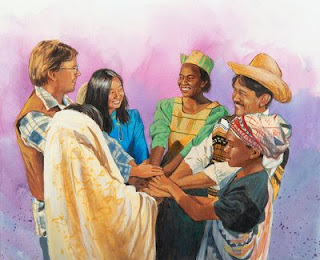Monday, November 30
Psalm 96:9 reads, “O worship the Lord in the beauty of holiness: Fear before him, all the earth”. How do we understand this concept, “the beauty of holiness”? What should this mean to a Christian, and how should it impact what we teach about art and the beauty often associated with it?
Though it has been said that “beauty is in the eye of the beholder,” we mustn’t forget who it was who created the eye to begin with (see Proverbs 20:12). Though we have to be careful not to worship the creation itself (see yesterday’s study), from the beauty of the creation we can learn about God and, indeed, His love of beauty. If our fallen world still looks so beautiful, who can imagine what it must have been like before the Fall? And this teaches us that God indeed is the Creator of the beautiful.
Study of arts and sciences can and should, then, draw us closer to the character and heart of God. Because we are a part of God’s own artwork and scientific phenomena, we can also learn more about our own identity in Christ.
“God would have His children appreciate His works and delight in the simple, quiet beauty with which He has adorned our earthly home. He is a lover of the beautiful, and above all that is outwardly attractive He loves beauty of character; He would have us cultivate purity and simplicity, the quiet graces of the flowers.” Ellen G. White, Steps to Christ, p. 85.
Read Genesis 3:6. What does it teach us about how beauty alone isn’t necessarily good or holy? See also Proverbs 6:25, 31:30.
As with everything God has done, we have an enemy who distorts and exploits it. It shouldn’t be surprising, then, that beauty and concepts of beauty can be used against us, as well. Thus, especially in the arts, Christian education, guided by Scripture, must help us learn to be careful in understanding that not all that is beautiful is necessarily good or holy.
What are some “beautiful” things that are not necessarily holy and good? Or, what are beautiful things that can be made unholy and bad, depending upon circumstances? What standard do we use to make these distinctions?

























